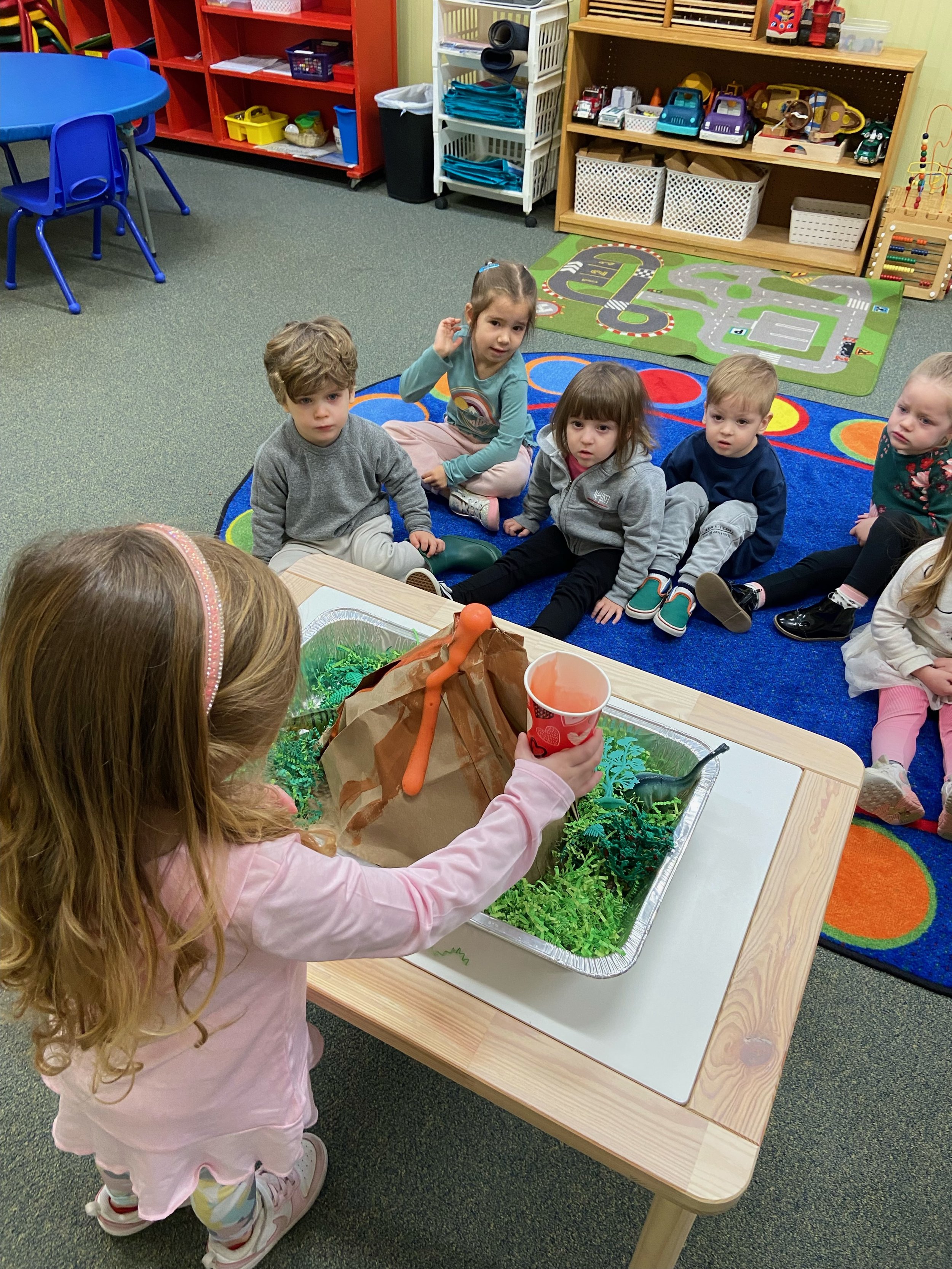Preschool Room
Children 3 Years old
This preschool room serves children turning 3 on or before December 1.
Our Threes: Our classroom for three-year-olds is all about creating a nurturing, engaging, fun atmosphere for children that may be away from home for the first time. We strive to create a flexible schedule which allows children to make choices about their day, with a balance of structured and unstructured activities. Children explore their environment and learn using a variety of hands-on, sensory experiences. They learn to follow a daily routine, classroom procedures, and school expectations. Teachers support students with positive guidance and frequent opportunities for choice. Children also work on developing social skills by beginning to engage cooperatively with peers. Children begin the process of learning to resolve conflicts with peers, with adult support when needed. They begin to develop self-regulation and identify their emotions. Children in this class are exposed to a variety of fine motor activities to build muscle strength as they begin to develop writing skills. They continue to develop language skills through language modeling by teachers and sharing during Show and Tell. Our three's classroom loves to investigate using science experiments, listening to stories, singing songs, and good use of our outside play area.
Pre-K Room
Our 4 and 5 Year Olds
This preschool room serves children turning 4 on or before December 1.
Fours: Our class for four-year-olds continues to develop a foundation of skill building for kindergarten. Children in the four-year-old class begin engaging in more elaborate play with peers through building together in the block area, engaging in pretend play in the home corner, or working together on a process art project. They develop higher level social skills needed in a positive classroom community, including empathy, conflict resolution and self-regulation. Our four-year-olds also continue to develop literacy skills through shared writing during our Morning Message, as well as in the frequent opportunities to communicate ideas in writing in all classroom areas, play-based literacy activities, and our print-rich environment. They learn letter formation and writing skills through developmentally appropriate writing activities. They start to engage in more elaborate play scenarios, with teachers serving as facilitators to help them expand and develop their ideas. Teachers ask frequent open-ended questions to help students consider their own thinking process. Our fours also love listening to stories, singing songs during Music and Movement, and, getting time outdoors to enjoy the playground.







